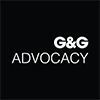In a healthcare system under pressure from escalating costs and clinician burnout, pharmacists and pharmacy assistants are crucial frontline healthcare professionals leading the way to enhanced patient self-care and health. This approach goes beyond recommending more over-the-counter medications or referring patients to their doctors and instead focuses on educating pharmacists to empower patients to take an active role in their self-care.
"It's important to stress that individuals requiring professional medical care should never attempt to treat themselves. Instead, we advocate for ongoing education at Pharmacy HCPs so patients can get trusted advice based on the latest medical science," said Michael Gullan, CEO of G&G Advocacy, which provides continuous learning to pharmacy HCPs via e-learning.
The real cost of uninformed care
Evidence indicates that approximately 60% of premature deaths are attributable to modifiable lifestyle factors, while World Health Organisation data suggest that about one-third of all deaths are potentially avoidable through accurate and timely treatment. Take dehydration as an example: Diarrhoeal illnesses remain a significant global killer, causing an estimated 1.3 million deaths worldwide each year. These illnesses frequently lead to dehydration, and when treatment with oral rehydration is delayed, the risk of death increases markedly. Pharmacists who can recognise red flags and apply evidence-based treatment recommendations play a critical role in reducing these preventable fatalities.
The implications for the economy are also profound. Rising absenteeism, presenteeism, and long-term illness are all linked to lifestyle choices, many of which can be changed with the right education and support. In South Africa, chronic illness rates are climbing alongside healthcare costs.
‘But here’s the challenge," said Gullan. “Doctors often don’t have the time to educate and support their patients. That’s where frontline health professionals, particularly pharmacists, pharmacist assistants, and clinic sisters, can make a significant impact," Gullan said.
Education means better patient outcomes
Empowering patients through information has been proven to improve health outcomes in chronic conditions such as diabetes, coronary heart disease, and rheumatoid arthritis. Self-efficacy, or a person’s belief in their ability to succeed in making lifestyle or treatment changes, has a significant impact.
When pharmacists take the time to explain medication regimens, potential side effects, drug interactions, or even the safe use of something as simple as an over-the-counter decongestant, they are doing far more than simply dispensing medicines. They’re building patient confidence and competence, two factors proven to improve adherence, reduce complications, and ultimately lower costs to the healthcare system.
“Health literacy, or the ability to seek, understand, and act on health information, is a medical and risk-management concern for pharmaceutical manufacturers and medical aids," Gullan added. “Poor health literacy leads to missed treatments, medication errors, and preventable hospitalisations.”
Pharmacists are trusted, accessible, and well-positioned to bridge this gap. By using simple language, checking for understanding (teach-back), and helping patients navigate their options, they can empower patients to make informed decisions and alleviate the strain on overstretched healthcare systems.
“Knowing how to test understanding via ‘teach back’ is a simple yet crucial skill for pharmacists and healthcare professionals,” said Gullan. The “teach-back” method is a patient education technique where the pharmacist, after explaining a concept, treatment plan, or medication instructions, asks the patient to repeat the information back in their own words. The goal isn’t to test the patient, but to check the provider’s clarity and confirm that the patient truly understands.
Rethinking patient collaboration
Medical informed consent is the process of providing the patient with all the information about a proposed medical intervention, such as a test, treatment, or procedure, so the patient can make a voluntary, informed decision about whether to proceed. It is often seen as a legal checkbox. But when seen as a learning process, it transforms into a powerful tool for patient engagement. Shared decision-making builds trust, and trust builds better compliance. “Pharmacist professionals can reinforce this education long after a doctor’s visit, turning a one-time prescription into a partnership,” said Gullan.
The opportunity is clear. We need to move beyond seeing pharmacists as transactional dispensers and toward valuing them as transformational patient educators and partners. With rising chronic disease rates and constrained medical resources, leveraging their expertise should be a healthcare imperative.
“It’s time for healthcare leaders, pharmaceutical manufacturers and medical aids to recognise the full value of pharmacist healthcare professionals. Smarter self-care starts at the pharmacy counter, and the return on that investment is long-term, measurable, and vital to saving lives and improving the health and well-being of all South Africans,” concluded Gullan.


































